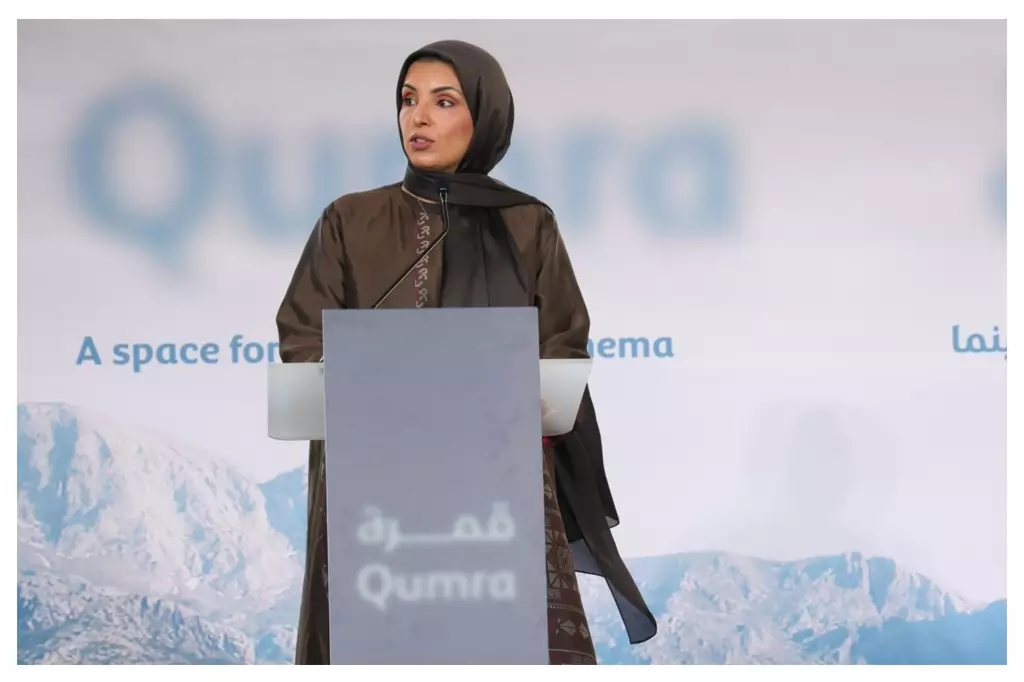The ongoing Israel-Gaza conflict represents a cacophony of pain and resilience that has reached unimaginable proportions. With increasing violence and an alarming humanitarian crisis, artists and cultural institutions are left grappling with the heavy burden of responsibility. At the annual talent and project meeting of the Doha Film Institute, the air was thick with urgency as attendees convened in an atmosphere pulsating with both creativity and the sobering realities stemming from geopolitical strife. This convergence of filmmakers, producers, and supporters not only serves as a creative refuge but also highlights the critical role that cinema must play in these tumultuous times.
Voices at the Forefront
Fatma Al Remaihi, the CEO of the Doha Film Institute (DFI), did not shy away from addressing the stark realities facing the region in her opening address. Her voice resonated with conviction as she condemned the increased attempts to silence Palestinian narratives. Raised against a backdrop of palpable fear and distress, Al Remaihi’s words refracted the struggles that extend far beyond the film industry, connecting the artistic community’s plight to broader societal issues. By referencing the recent attack on Hamdan Ballal, an Oscar-winning Palestinian filmmaker, Al Remaihi laid bare the dangerous intersection between art and state-sanctioned violence, imploring her audience to recognize that creativity does not shield one from oppression.
The Power of Storytelling
The DFI’s mission to unearth untold stories is not merely an artistic endeavor; it is a vital act of resistance. Al Remaihi reminded the attendees that the art of storytelling is integral in the face of misinformation and erasure. In an age where many institutions have opted for silence, she urged filmmakers to stand resolutely as bastions of truth and amplification. Emphasizing that cinema transcends the realm of entertainment, Al Remaihi posited that it is one of the last remaining platforms for empathy, understanding, and social advocacy. The significance of this sentiment is amplified in light of the strife in the region, where narratives can either foster division or inspire change.
Consequences of Inaction
By juxtaposing the DFI celebrations with the horrors unfolding in Gaza, it becomes painfully evident that art cannot exist in a vacuum. The subtext of Al Remaihi’s address resonates with a call to action: to remain complacent or silent amidst suffering is to become complicit in the erasure of vital histories. The recent escalation of violence against artists and activists in the region underscores the precarious nature of creative expression under oppressive regimes. It serves as a poignant reminder that even global recognition, such as winning an Oscar, cannot shield one from the perils of their reality. This harsh truth adds weight to the urgency of fostering safe spaces for creative voices—a subject that Al Remaihi emphasized must remain paramount in discussions surrounding cultural events.
A Platform for Resilience
The Qumra film initiative, set against the backdrop of the DFI’s fifteenth anniversary, stands as a beacon of hope, representing much more than just a forum for emerging artistic talent. It embodies a platform for solidarity, resilience, and defiance against systemic attempts to silence marginalized voices. Al Remaihi’s assertion that “cinema is more than just art” invites filmmakers and audiences alike to reconsider their role in the dialogue surrounding socio-political issues. The festival, which hosts directors and producers of diverse films in various stages of development, thus becomes an essential celebration of cultural strength and adaptability, serving as a counter-narrative to the encroaching despair.
Celebrating Humanity Through Art
In these challenging times, the role of events like Qumra becomes increasingly vital. They not only present opportunities for artistic growth but also cultivate an environment where the voices of the oppressed can flourish, unfiltered and unrestrained. By harnessing the power of cinema, filmmakers can craft compelling narratives that capture pieces of the human experience often overlooked. Rather than glamorizing or sensationalizing conflict, art can bring forth nuanced perspectives that foster understanding, empathy, and, ultimately, change. As the world witnesses gruesome realities and systemic violence, the messages broadcasted through cinema can resonate across borders, acting as agents of hope and remembrance.
The gathering in Doha stands testament to the unwavering spirit of the artistic community in confronting adversity. With artists at the helm, forging stories that reflect the complexities of human existence, a hopeful narrative emerges—one that is rich with possibilities for healing and solidarity, challenging the status quo in pursuit of a more equitable world.

